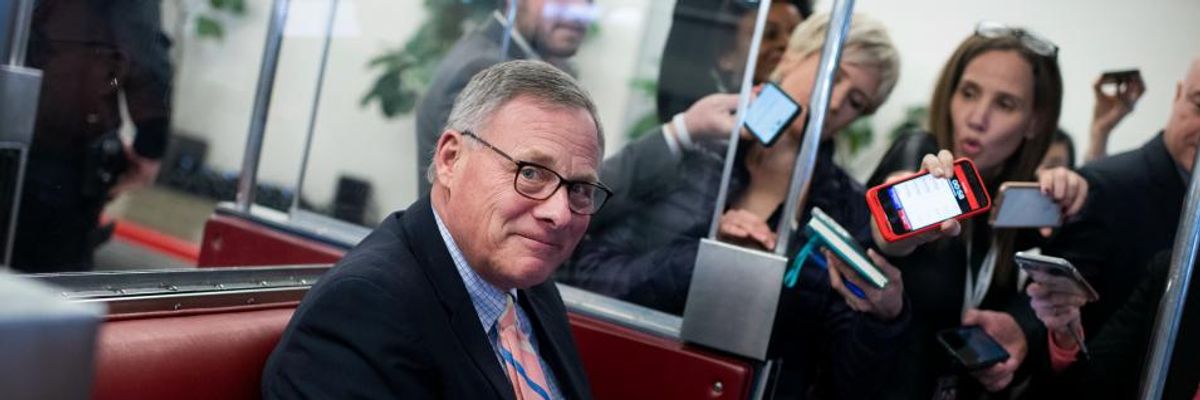A new analysis of financial disclosure documents found that Republican and Democratic members of Congress made nearly 1,500 stock transactions worth up to $158 million between February and April as the coronavirus spread across the U.S., heightening suspicions that elected officials in charge of the federal response to the pandemic have opportunistically cashed in on it.
"It's ridiculous that the public should even have to wonder if a member's personal financial interests are playing a role in any public policy, let alone the response to a crisis like Covid-19."
--Delaney Marsco, Campaign Legal Center
The Campaign Legal Center (CLC), a non-partisan watchdog group, uncovered at least 127 purchases or sales in securities by senators and at least 1,358 transactions by members of the House between February 2 and April 8.
"Of those transactions, some members of Congress were strategically buying stocks in companies that might see a boost during the crisis, as well as selling stocks that seemed likely to tank," CLC said. "Public servants made purchases in remote work technologies, telemedicine companies, and car manufacturers that were shifting their production to ventilators. Sales were made in companies in the restaurant and hospitality industries."
Last month, as Common Dreams reported, Sens. Richard Burr (R-N.C.) and Kelly Loeffler (R-Ga.) faced calls to resign after it was revealed that they sold off stock in late January and early February just before the market tanked due to the Covid-19 crisis.
The CLC analysis (pdf) shows that Burr and Loeffler--both of whom remain in the Senate--are not alone.
"The stock trading was bipartisan--27 Democrats, 21 Republicans, and 1 independent were making trades as the devastation that Covid-19 would exact on the U.S. crystallized," CLC said. "Most congressional members are millionaires and a number have investments in the tens of millions and far more likely to have investments in the markets."
Rep. Phil Roe (R-Tenn.) had the most transactions of any member of Congress with 366 worth between $2.4 and $10.6 million. Rep. Gilbert Cisneros (D-Calif.) trailed Roe with 219 transactions worth between $1.9 and $6.7 million.
"It's ridiculous that the public should even have to wonder if a member's personal financial interests are playing a role in any public policy, let alone the response to a crisis like Covid-19," tweeted Delaney Marsco, ethics counsel with CLC.
While it is not clear whether any of the transactions were illegal, CLC said "the volume of trading during this short time period highlights a serious problem."
"The onslaught of public disclosure in the next few months coupled with the increased financial hardship of Americans creates an opportunity for constituents to unite and demand a change from their elected representatives," CLC said. "Disclosure is the first step towards government accountability, but to rebuild public trust in government, Congress needs to go further and restrict trading of certain individual stocks."

